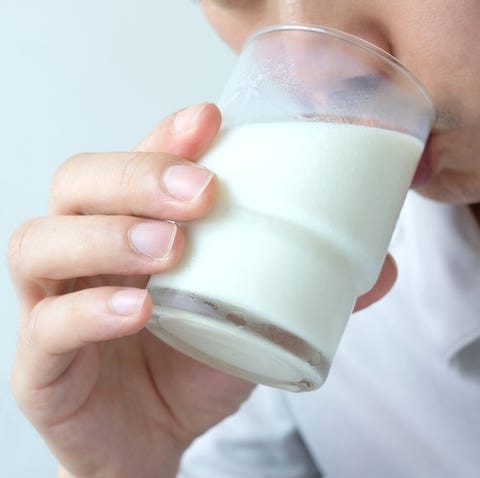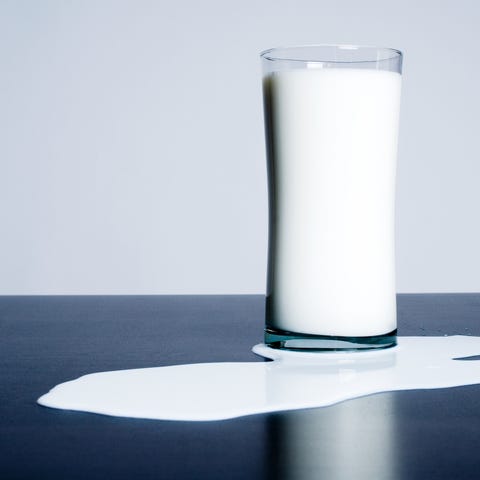
First, deep breath.
And now…
Soy, pea, almond, cashew, potato, oat, hemp, peanut, lactose-free, coconut, rice, flax, pistachio, banana, “plant,” hazelnut, quinoa, annnnnnnd unless there’s another alternative milk out there (and there’s probably another alternative milk out there), that’s all the alternative milk out there.
Then, to further leave you winded, within each of these styles of non-dairy milk alternatives, there exists several brands each marketing that they’re somehow better for you than whatever dreck the competitors offer.
During the last five years non-dairy “milk” has gone through massive growth. A report back in 2019 by The Business Research Company predicted that the global milk substitutes (non-dairy milk) market, which was valued at about $17.7 billion in 2018, was expected to grow to $27.17 billion at an annual growth rate of 11.3 percent through 2022.

This growth has knocked dairy farmers on their heels, with representative associations petitioning the government to define that milk comes from cows and any “milk” product that comes from another source (see long list above) shouldn’t be allowed to advertise that it’s milk.
While Americans ate 34 percent more cheese and nearly 21 percent more butter from 1975 to 2018, according to the latest USDA numbers, they’re drinking about 26 percent less dairy milk.
That said, it’s not like Americans have completely abandoned milk.
A 2018 survey by Consumer Reports found that “while about two thirds, or 68%, of Americans say they usually or always purchase cow’s milk, 18% say they purchase cow’s and plant-based milk equally, and 10% say they usually or always purchase plant-based milk.”
And that same survey discovered some interesting insights into why plant-based dairy alternatives have flooded the market.
Clearing Up the Confusion Around Plant-Based Milks
That same Consumer Reports’ survey found the following:
In short, many Americans believe that “milk” is at least as healthy as milk—and maybe even healthier.
And “milk” advertisers aren’t doing a whole heck of a lot to dissuade them.
Califia Farms Unsweetned Almond Milk features the phrase “40% more calcium than milk” on its label. Ripple, a pea milk, splashes “half the sugar of milk” across its packaging. And Almond Breeze, longtime titans of the “milk” industry, lists “no saturated fat” as one of it’s many supposed benefits.
Read enough of the language on these containers and you begin to understand the bewilderment. On a regular ol’ milk jug, the plastic kind your mom or dad used to lug home from the grocery store, there’s no flashy advertising, no hawked health benefits in bold block letters, no real drive to prove anything.
And you start to wonder…
What Is the Healthiest Milk?
It’s milk.

One cup of 2% milk contains 122 calories, 8 grams (g) protein, 12g carbohydrates (0g fiber, 12g sugar), and 5g fat. On a micronutrient level, the same amount offers 307 milligrams (mg) calcium, 388mg potassium, and about 3 micrograms (µg) vitamin D.
While Original Almond Breeze says that it contains “half the calories of 2%”—and that comparison is true—what they don’t advertise is that the product has 1 gram of protein and 7 grams of added sugar. Though a cup has roughly 150mg more calcium, a nutrient most men ages 14 to 69 tend to consume enough of, it has only 170mg potassium, a nutrient men could use more of.
Back in 2017, Canadian researchers assessed the nutrition of a flight of various “milks” and concluded that “when consuming almond milk care should be taken that various essential nutrients are available through other sources in the diet in appropriate quantities.”
“Other sources” meaning not alternative milk.
And the conclusion of the study went on to say “Rice milk and coconut milk cannot act as an ideal alternative for cow’s milk because of limited nutrient diversity … Further research is needed to understand the effect of various conventional and novel processing methods on the nutrient profile, flavor and texture of these alternative milks.”
Okay, Well What Is the Healthiest Non-Dairy “Milk” Then?
That would be soy milk.

Silk’s Original Soymilk, for one example, does have 8g protein per cup, and 2 grams of fiber to boot. It also has 450mg calcium, 380mg potassium, and 3µg vitamin D.
If you’re worried about soy and estrogen levels, don’t be.
But fair warning with soymilk—and all alternative “milks,” really—in that any product labeled as “unsweetened” is your bet. Silk’s Original Soymilk may be roughly equivalent to milk in terms of nutrition, except that it contains 5 grams of added sugar.
Yes, milk, does contain 12 grams of sugar, but it’s from lactose, a natural sugar. The distinction is important enough that many Nutrition Facts Panels distinguish between “added sugars” as a sub-line to “total sugars.”
“Milk” made from almonds, cashews, hemp, oats, and other various plants that aren’t soy often fall short on protein and can contain high amounts of added sugar. Chobani’s Chocolate Oat Milk, for one, has 15 grams of added sugar per serving for 140 calories and only 2 grams of protein.
But Isn’t Milk Bad For You?
If you’re lactose intolerant, milk can cause all sorts of unpleasant symptoms. And, for those reasons, if you can’t tolerate lactose, consider the wide variety of milk products out there just for you. (Remember: Stick to the kind without added sugars.)

If you’re concerned about milk and prostate cancer, this 2019 review concluded the following: “although there are some data indicating that higher consumption of dairy products could increase the risk of prostate cancer, the evidence is not consistent.”
If you’re worried about dairy and heart health, this 2018 review had this to report: “The authors suggest that less emphasis is needed on the impact of milk and dairy product consumption on serum cholesterol levels but more emphasis should be placed on inflammatory biomarkers to elucidate the cardioprotective mechanisms of dairy products.”
(And, if you’re fretting about saturated fat, in general, give this a read.)
If a certain pro-plant-based film has you vexed that milk may toy with your hormones, just know that the study referenced in that movie is based on a 2010 study published in the journal Pediatrics International, which was conducted using the milk of pregnant cows. The scientists pulled from a pool of 18 people (seven men, six children, and five women), and found that milk reduced testosterone secretions—not overall testosterone—temporarily. Seven men. Temporarily.
The Bottom Line
The vast body of scientific research supports milk for overall health. While alternative “milks” aren’t inherently bad for you, they’re not amazing for you either. If you’re going to drink them make sure you’re reading those Nutrition Facts Panels.
Source: Read Full Article